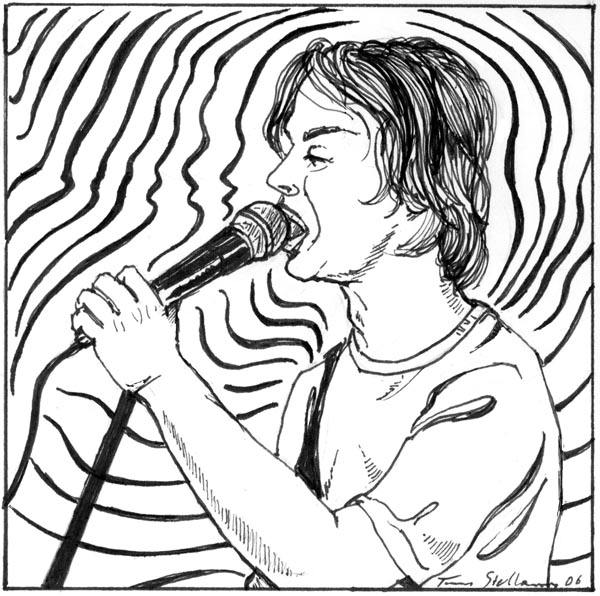Virgin Ears
On Reverb
The first time I put on the Thermals’ More Parts Per Million, I hear blown-out vocals, which to me means the singer (in this case, Hutch Harris) is redlining, singing at the top of the levels (though not to the point where he’s clipping and cutting out). It sounds warm and intense and has a natural distortion. That seems to be Harris’ typical mode on this album. But on the seventh song, “Time to Lose,” there’s reverb on his vocals.[1]I don’t necessarily like a lot of reverb, especially on my own vocals, but I can appreciate it when it’s done in a way that makes sense/and or makes me go yeah! The Thermals are yeah! in the way the Wedding Present is—manic and hurt and desperate and ugly and alluring.
What is reverb supposed to do to vocals? Should reverb sound natural, should it give you the sense that this is how the guy’s voice sounds singing these lyrics this way in this situation[2]? Should it sound like something is happening to the singer?[3]
Neither or both of the above may be true. Different strategies, deliveries and treatments work in different songs, and just because something doesn’t work in a song doesn’t mean it doesn’t work at all (or ever). Guitar distortion works the same way. Sometimes it sounds cheesy and artificial,[4]but when it’s used right, it is resolutely itself, a particular texture of sound that seems to come from an instrument that makes that sound (rather than from an instrument run through a pedal). It inspires a suspension of disbelief, in that you might think, Wow, what the fuck is that? Yeah! If you’re thinking, That Rat doesn’t belong here, you’re probably a guitarist, but you might just recoil a bit from the song, smelling something out of place.
Distortion is like voice. Heavily distorted guitar often sounds angry or anxious or dreadful (sometimes just dreadful). Distorted vocals can also sound excited and flustered, or inchoate and repulsive.
I don’t want to conflate reverb with distortion. Technically, reverb is distortion, though I tend to think of distortion as chunky and shattered, which is closer to how blown-out vocals, and rock music, sound. To me, anyway. Maybe you hate rock music.
[1] “I think we’ve reached our limit,” Harris shouts.
[2] “situation” as in the context of a song, in terms of emotion (expressed and withheld) and, more literally, what’s going on in a song (which of course implies story, and songs don’t necessarily have stories)
[3] Of course, one can imagine emotions are “happening” to the singer.
[4] not that cheesy and/or artificial can’t be effective and yeah!
Jeff T. Johnson is not afraid of indie rock.
